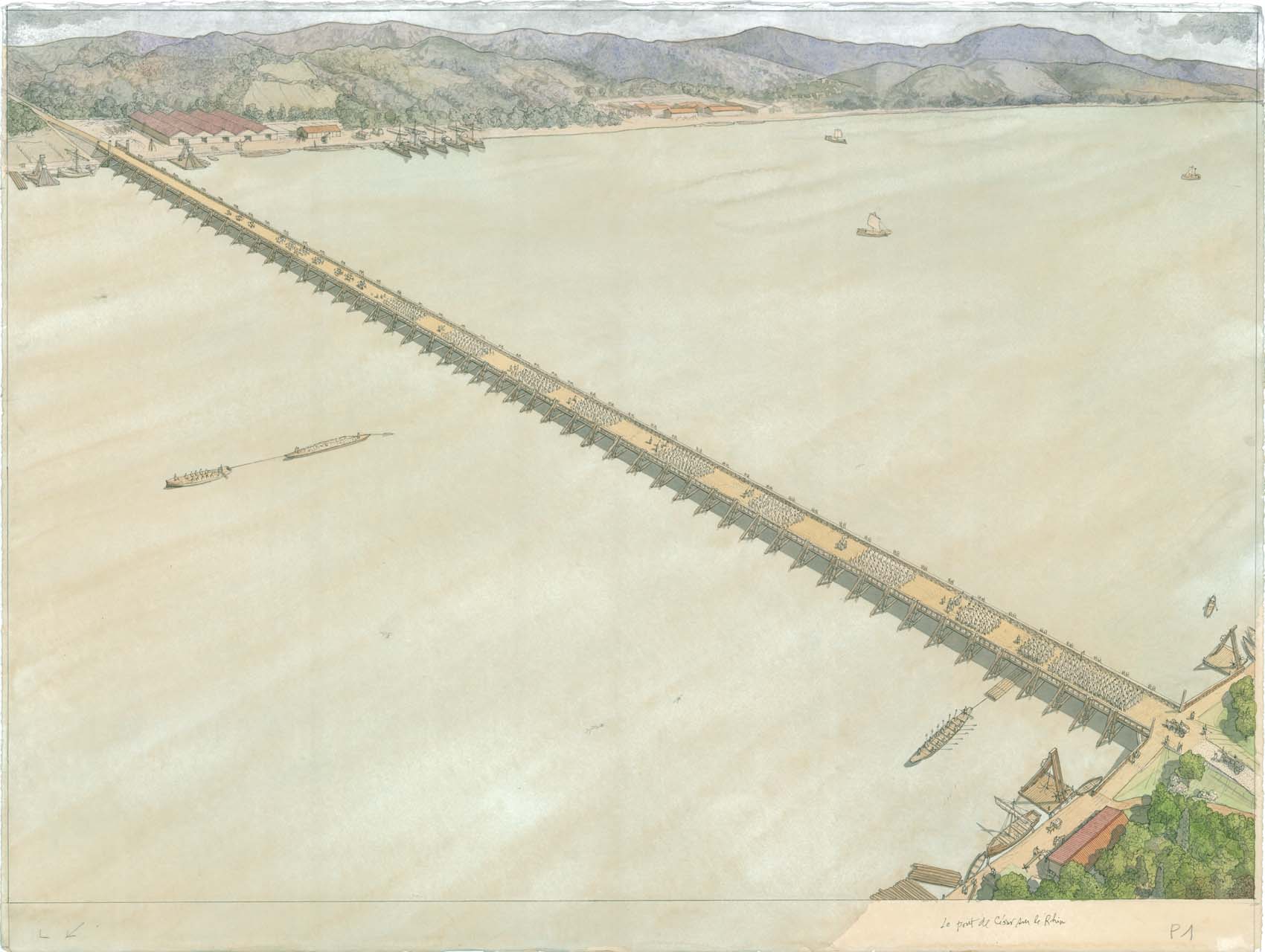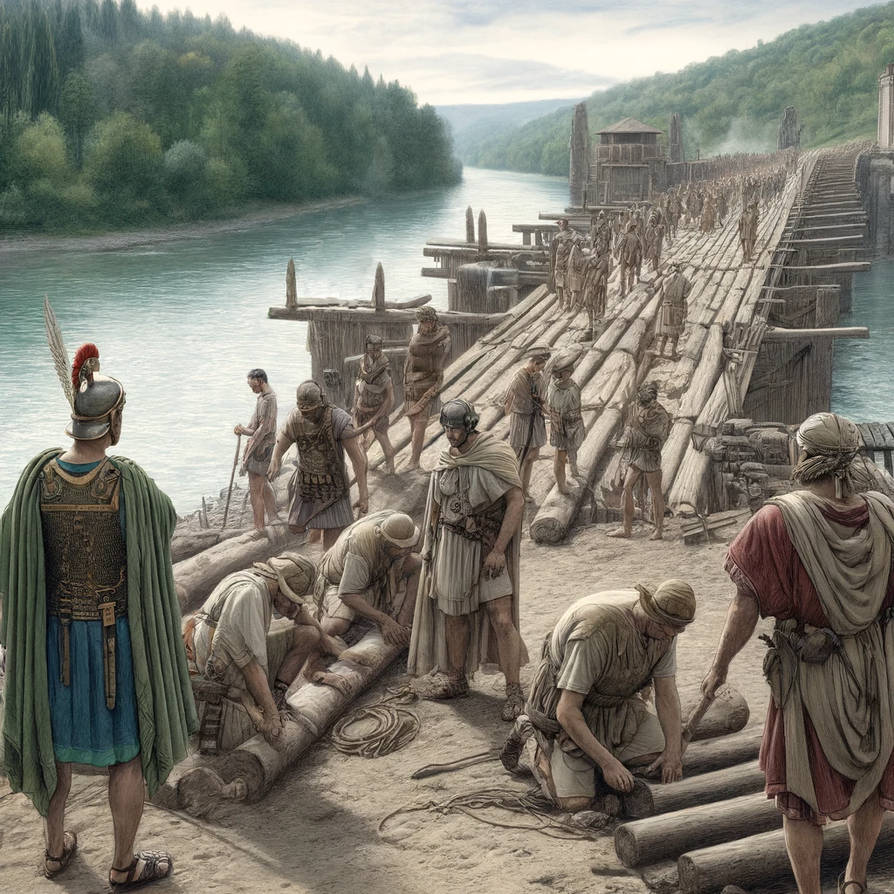Why Julius Caesar Built a Bridge Over The Rhine And Destroyed it 18 Days Later
By Kaushik Patowary
January 4, 2021
Amusing Planet
This article was originally published in La Brújula Verde. It has been translated from Spanish and republished with permission.
The construction was carried out between present-day Andernach and Neuwied, downstream from Koblenz, an area where the depth of the river would be up to 9 meters. Watchtowers were erected on both banks to protect the entrances, and piles and barriers were placed upriver as a measure of protection against attacks and debris carried by the current.
Caesar's 40,000 soldiers built the bridge in just 10 days on double wooden piles that were driven into the riverbed, dropping a huge and heavy stone on them as a mace. The construction system ensured that the greater the flow, the harder the bridge was held together.
It is not known who was the engineer responsible for this new bridge construction technique, which had never been used before. Cicero suggests in a letter that his name was Mumarra, although we cannot rule out the possibility that it was Marcus Vitruvius Polio (the architect who was the author of the famous Ten Books of Architecture ), who was meeting Caesar. It is estimated that the length of this bridge could have been between 140 and 400 meters, and its width between 7 and 9 meters.
Once it was finished, Caesar crossed with his troops to the other bank, where the Ubians were waiting for him. Then he learned that the tribes of the Sicambrians and the Suevi had withdrawn to the East, in anticipation of his arrival. Not being able to present a battle and after destroying some villages, Caesar decided to turn around, cross again the bridge and knock it down behind him. It had lasted 18 days.
Two years later history repeated itself. Near the place where the first bridge had been and about 2 kilometers to the north (possibly next to the current Urmitz), Caesar built a second, although this time he did not elaborate on the details.
 Illustration of Caesar’s Rhine Bridge from “History of Rome, and of the Roman people, from its origin to the invasion of the barbarians" (1883)
Illustration of Caesar’s Rhine Bridge from “History of Rome, and of the Roman people, from its origin to the invasion of the barbarians" (1883)



Caesar's Rhine Bridge, by John Soane (1814)

A scale model of Caesar’s Rhine Bridge at The Museo Della Civilta Romana in Rome



Reconstruction of a Roman pile driver, used to build the Rhine bridge at Ehrenbreitstein Fortress in Koblenz, Germany.
Archaeological excavations carried out in the late 19th century in the Andernach-Neuwied area found remains of pilings in the Rhine (their analysis in the 20th century showed that they had been cut down in the middle of the 1st century BC), which may belong to Caesar's bridges, although the place of its location has never been able to be determined exactly.

Possible location of Caesar’s Rhine Bridge